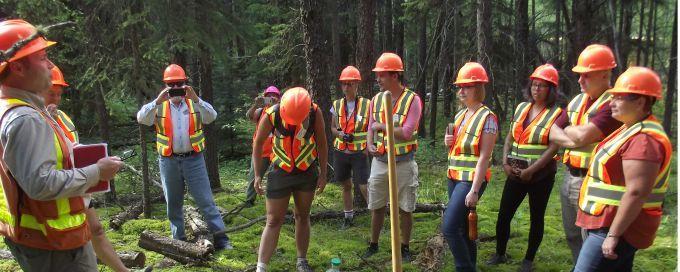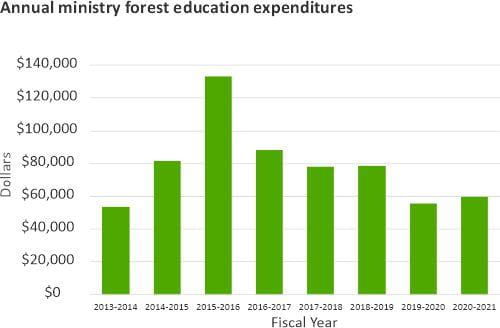
Forest research and education are important activities carried out by government and industry to improve the current state of forest management. Increasing public knowledge and awareness through education initiatives allows stakeholders to assess and address forest management in an informed way.
What's happening

What we are doing
Forest research and education slowed down with the decline in the forestry sector in 2008-09 but began to recover in 2012. Over the last eight years, the ministry has invested an average of $78,600 per year in education activities (not including in-kind activities). Some of the educational activities and tools supported by the ministry include: Focus on Forests, a program for students from K to 12; an innovative project on communicating forest age effectively to the public; forestry teacher's tours; and various workshops and presentations throughout the year.


Many research and innovation initiatives are focused on the priority needs of government and industry to inform and support legislation and strategic planning. The ministry contributes to research and innovation through projects such as the development of forestry-related Environmental Code chapters, climate change and adaptation research, province-specific growth and yield projects, enhanced forest inventory projects, research on natural forest patterns, and work related to insect and disease management. Significant contributions have been made to support forest inventory projects using new technologies and innovative approaches such as Lidar mapping. This in turn has helped inform the development of a Forest Inventory Code Chapter which provides industry with resources and best-practices for updating their forest inventories. This inventory work has helped facilitate a large scale forest resource inventory of Saskatchewan's forest fringe area. Over the last eight years, the ministry has invested an average of $329,700 per year towards forestry related research.
Why it matters
Forest education helps to support informed dialogue and engagement with stakeholders and the public. Fostering an understanding of sustainable forest management improves relations and supports the social licence for industry activities.
Research and innovation support sustainable forest management practices and can inform forest managers on how to adapt practices to regenerate forests into the future with a changing climate. Research can also allow for a more efficient and timely assessment of forest pests and diseases for proactive protection of the forest.
